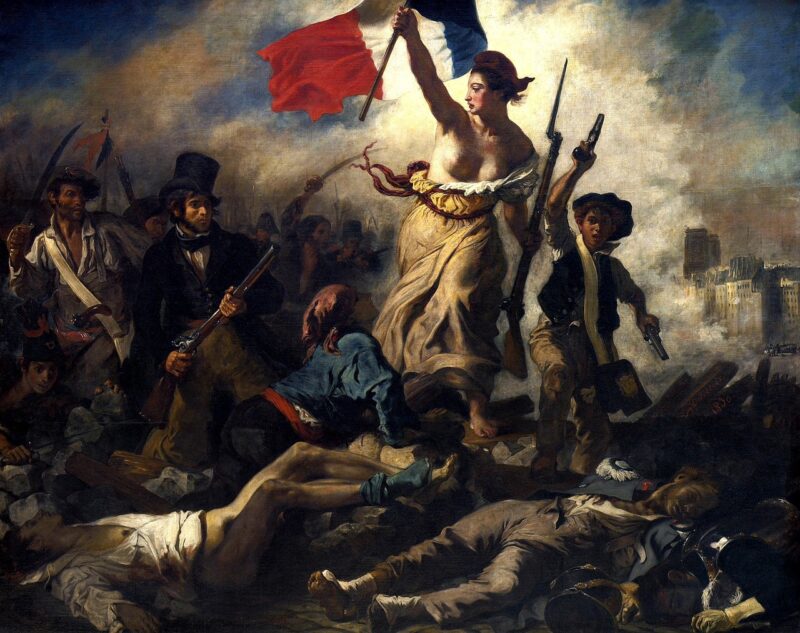How the French Revolution Inspired Political Change Across Continents
November 16, 2024

The French Revolution, which lasted from 1789 to 1799, was not only a pivotal event in French history but also a profound catalyst for political transformation across the globe. The revolution marked the decline of monarchies and feudal systems and inspired revolutionary movements in various nations. In this article, we will explore how the ideals borne from the French Revolution influenced political change across continents, including Europe, the Americas, and Asia.
1. The Ideals of the French Revolution
The French Revolution is widely recognized for its core values of liberty, equality, and fraternity. These ideals echoed deeply in the hearts and minds of oppressed populations worldwide, providing a framework for challenging existing power structures. The revolution dismantled the absolute monarchy, establishing a republic that promoted the idea of popular sovereignty — the belief that the authority of the government is created and sustained by the consent of its people.
Key ideological contributions from the French Revolution included:
- Liberty: The revolution emphasized the importance of individual freedoms and rights, inspiring movements that sought to liberate oppressed individuals from tyrannical rule.
- Equality: The principle that all men are created equal resonated globally, encouraging social and political reformations that aimed to erase class-based inequalities.
- Fraternity: It fostered a sense of unity and collective identity among the citizenry, galvanizing them toward collective action for independence and representation.
This powerful combination of ideological tenets would fuel revolutionary sentiments across various regions, resulting in significant political shifts.
2. Influence in Europe: Revolution and Reform
The effects of the French Revolution were felt immediately across Europe. Many countries experienced their own uprisings as a result of its ideological spread.
a. The Revolutions of 1848
The wave of revolutions across Europe in 1848, known as the ‘Springtime of Nations,’ was significantly influenced by the French Revolution. The revolutions sought to address widespread social inequalities, economic crises, and demands for constitutional reforms. Countries like France, Italy, Germany, and Austria experienced uprisings where the populace rallied around democratic ideals, inspired by the French thirst for liberty and self-determination. Ultimately, though many revolutions were suppressed, they laid groundwork for future advocacy for democratic reform and national unity.
b. The Rise of Nationalism
In addition to democratic aspirations, the French Revolution also fueled nationalist sentiments. In nations like Italy and Germany — which were not yet unified — revolutionary ideas fostered a sense of national identity and purpose. The call for self-rule resonated with diverse ethnic groups yearning for independence from empires.
3. Influence in the Americas: From Revolution to Republic
The ideals of the French Revolution permeated the Americas, influencing major political changes through both revolution and reform.
a. The Haitian Revolution
One of the most direct responses to the French Revolution was the Haitian Revolution (1791-1804) where enslaved Africans rose against French colonization. Inspired by the principles of liberty and equality, Haitian revolutionaries fought for their independence, subsequently establishing Haiti as the first independent black republic and the first nation in Latin America to abolish slavery. The Haitian Revolution profoundly impacted freedom movements throughout the Americas, signaling the potential for enslaved individuals to claim their rights.
b. The Latin American Wars of Independence
Creative minds in Latin America, such as Simón Bolívar and José de San Martín, were deeply influenced by Enlightenment thinkers and revolutionary ideas propagated during this period. They sought to liberate their nations from Spanish colonial rule, guided by the revolutionary rhetoric of freedom and equality. The resulting independence movements across South America can be traced back, in part, to the ideological inspiration gained from the French Revolution.
4. Influence in Asia: Seeds of Change
Political transformation inspired by the French Revolution would later reverberate through Asia, setting the stage for numerous revolutions and reform movements.
a. The Meiji Restoration in Japan
In the late 19th century, as Japan faced external pressures from Western powers, the principles of self-determination and modernization encouraged the Emperor’s call to restore power and foster rapid industrialization known as the Meiji Restoration (1868). Though not a direct revolution, this movement exemplified the global influence of revolutionary ideas, as Japan transitioned from a feudal society to a modern state with an emphasis on national sovereignty.
b. The Boxer Rebellion in China
Another example is the Boxer Rebellion (1899-1901), which was partially motivated by anti-imperialist sentiments. While the focus was defeating foreign influence, the rebellion’s rhetoric echoed revolutionary themes of self-determination akin to those originating from the French Revolution. Even though it ended in failure, the uprising demonstrated the growing desire for political change and independence across Asia.
5. Lasting Legacy of the French Revolution
The echoes of the French Revolution can still be felt today in various struggles for freedom, equality, and democracy around the world. Its aftermath set the stage for the universal principles of human rights, influencing organizations like the United Nations and various declarations across nations. The claim that all individuals are entitled to liberty and equality continues to inspire oppressed peoples seeking justice.
Legal reforms, such as the Napoleonic Code introduced in European territories, reshaped legal frameworks while amplifying ideas of individualism and citizenship.
Furthermore, the rise of citizen movements in the modern age can be traced back to the revolutionary spirit of 1789, maintaining the belief that people have the power to challenge oppression.
Conclusion
The French Revolution served as a powerful symbol of the fight for liberty and equality, influencing political change across continents and inspiring generations. The ideals that spread during this time laid the groundwork for various independence movements and revolutions that reshaped political landscapes globally. The effects of this historical turning point continue to resonate, reminding us of the enduring struggle for justice and the potential for change within societies.
By examining the global impact of the French Revolution, we can appreciate the interconnected nature of political movements and understand the quest for human rights that persists today.






